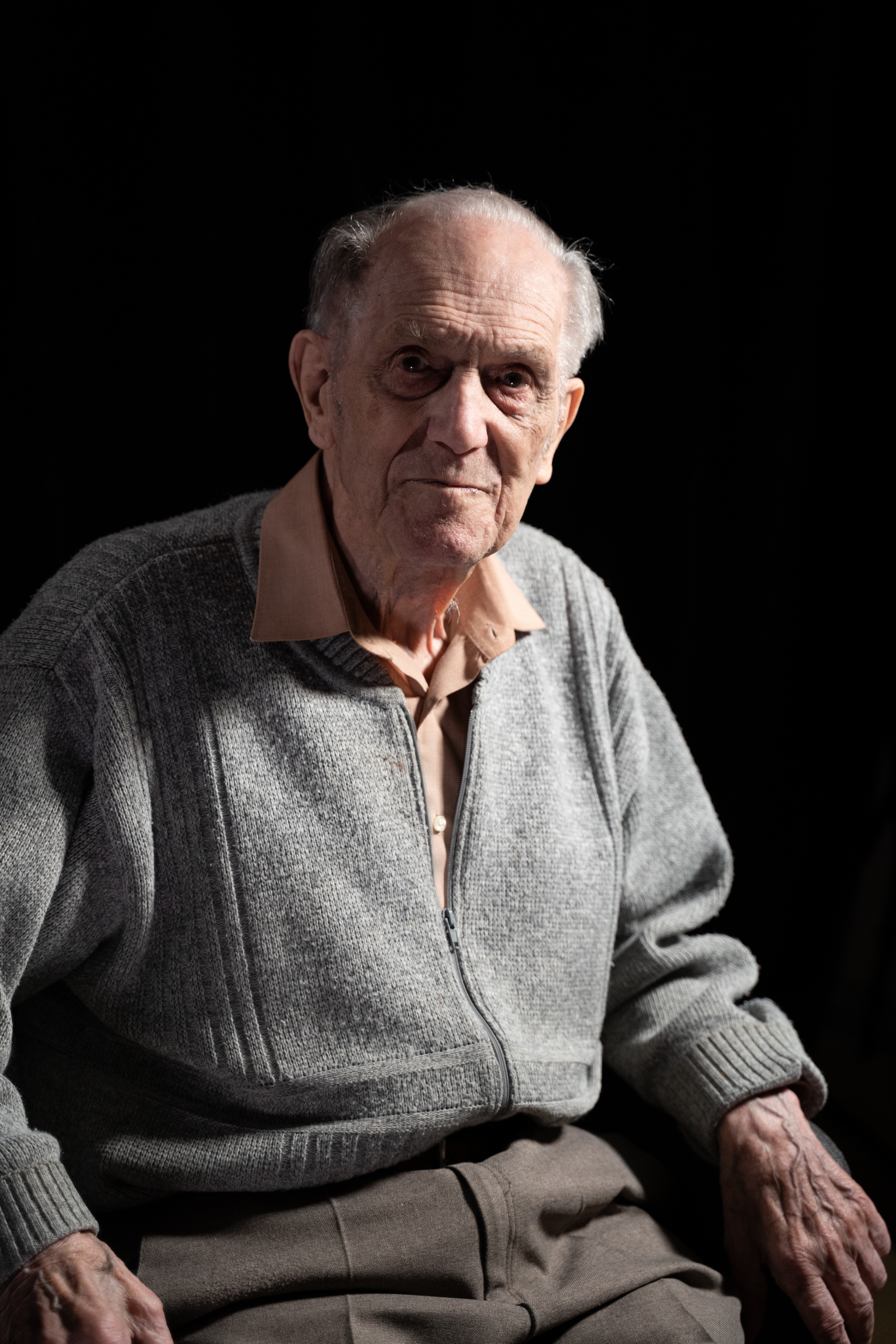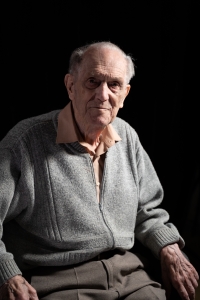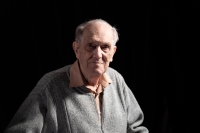From the Adolf-Hitler-school to British war captivity

Stáhnout obrázek
Hans Brenner was born in 1927 in Zschopau as son of a teacher. From 1939 on, he was a student of the Adolf-Hitler-school, first in Sonthofen and later in Pirna. These types of schools were designed to raise the new National Socialist elite and indoctrinate the young people accordingly. When he was sixteen years old, Hans Brenner was trained to assist with the anti-aircraft guns (“flak”) to shoot down allied bombers. After working at the flak for a year, he was drafted in October of 1944, when he was only seventeen years old. In January, he was sent to the Western front, near the Dutch border. There he was taken prisoner by the British army. After the end of the war, he was able to return to his family in Zschopau and soon, he began working as a teacher. Hans Brenner has distinguished himself through his extensive research on death marches and the National Socialist regime in Saxony. He was awarded the Order of Merit of Saxony in 2021.

